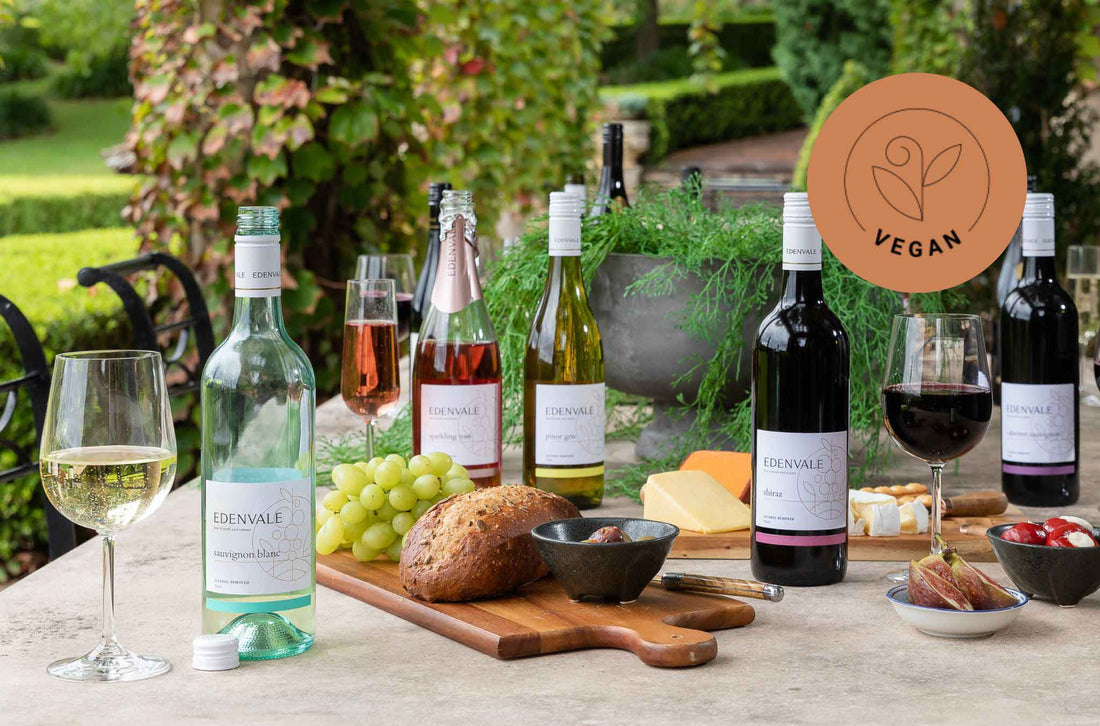You could be forgiven for thinking that all wines are vegan. However, it’s not the case. Some wine-making methods use animal-derived products during farming or production. This includes low and non-alcoholic wines and alcohol-removed wines.
Winemaking is a complex process that takes patience and skill. Winemakers will use different methods to bring out a unique flavour or characteristic of a wine.
Part of the winemaking process, after pressing, involves allowing the solids to sink to the bottom of the barrel. This takes time. However, the process can be sped up in a process called ‘fining’. Fining can also be used to adjust characteristics of the wine, such as flavour and colour. It’s during this part of the process that animal products might be used.
Animal products that might be used in winemaking include:
- Egg whites – poultry product
- Casein – dairy product
- Gelatin – animal product
- Isinglass – fish product
- Chitosan – shellfish product
It’s important to add that the animal products are filtered out before the wine is bottled.
Check the label
If you follow a vegan diet, you should check the label before drinking. Most wine labels will declare whether they are vegan or if an animal product has been used during the manufacturing process. For example, you might read: This product may have been produced with the aid of Milk and traces may remain.

What is added to wine besides grape juice?
The answer to that question is difficult as winemakers use various techniques to produce their wines, which may include many ingredients, additives and processing aids.
Winemakers in Australia are not obliged to declare ingredients other than allergens. All labels must declare allergens by 25 February 2024.
Wine Australia outlines the requirements of wine labels here. There is also a list of additives and processing aids that are used in wines here.
Wine labelling in Australia must comply with several Commonwealth and State legislations. These include:
- Wine Australia Act 2013
- Wine Australia Regulations 2018
- Australia New Zealand Food Standards Code
- National Measurement Act 1960
- National Trade Measurement Regulations 2009
- Competition and Consumer Act 2010
- State Food Acts
At Edenvale, we are committed to ‘truth in labelling’ and all our wines include a full list of ingredients, additives and allergens.
Sustainability practices in winemaking
Another difficult question to answer regards sustainability practices used in winemaking. This is something winemakers don’t always declare and are not under any obligation to do so. Individual websites might shed light on their sustainability practices.
Winemakers can be part of Sustainable Winegrowing Australia, which is a national program where winemakers demonstrate their commitment to leaving the world a better place. If you want to know if a winemaker follows sustainable practices, you should contact them directly.
At Edenvale, we source grapes from the best vineyards across south-eastern Australia. We consider the sustainability practices of the vineyards before we source the grapes.
Health benefits of reducing your intake or abstaining from alcohol
Those who choose wines that contain no or low alcohol have usually made the conscious decision to drink healthier while still being able to enjoy a true wine experience.
Aside from the health benefits of simply not consuming alcohol, alcohol-removed wines provide health benefits, which include being a good source of antioxidants and being low in calories.
Polyphenols are found in the skin of grapes and work as antioxidants. Antioxidants protect the body’s cells from free radical damage and premature ageing. Red wines tend to have more polyphenols than white wines because skin contact is longer. You can read more about antioxidants in wine here.
During the alcohol removal process of Edenvale wines, many calories are also removed. Alcohol is created from the fermentation of sugars from the grape. By removing the alcohol, we are also removing calories. That’s why people who are looking to reduce their calorie intake will opt for alcohol-removed wines, such as Edenvale. You can read more about the health benefits of Edenvale alcohol-removed wines here.
Do you have a question about Edenvale alcohol-removed wines?
We are happy to answer your questions. If you have a query about which of our wines are vegan, our sustainability practices, or any other information about our alcohol-removed wines, please feel free to contact us using the form below.
Edenvale alcohol-removed wines
Which ones are vegan?
Classic Collection
| V | |
| V | |
| V | |
| V | |
| V | |
| V | |
| V | |
| V | |
| V |
Premium Reserve Collection
| V | |
| V | |
| X |
The Expedition Series
| X | |
| X | |
| X |
Slim-line Cans
| V | |
|
Aperitivo Spritz |
V |
Special Collection
| V |
Fronti Collection
| V | |
| V |
V = Vegan
X = Non-vegan




